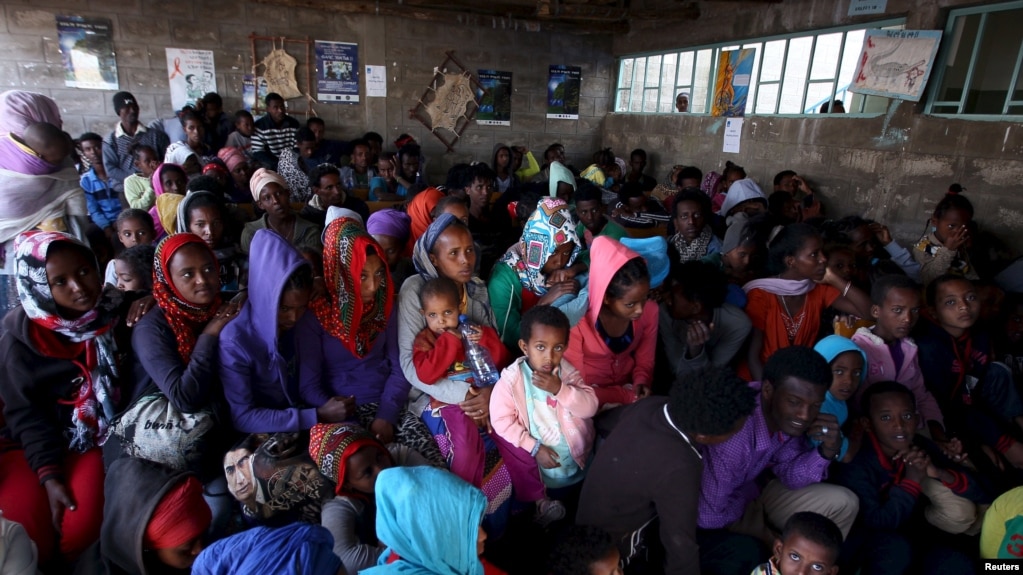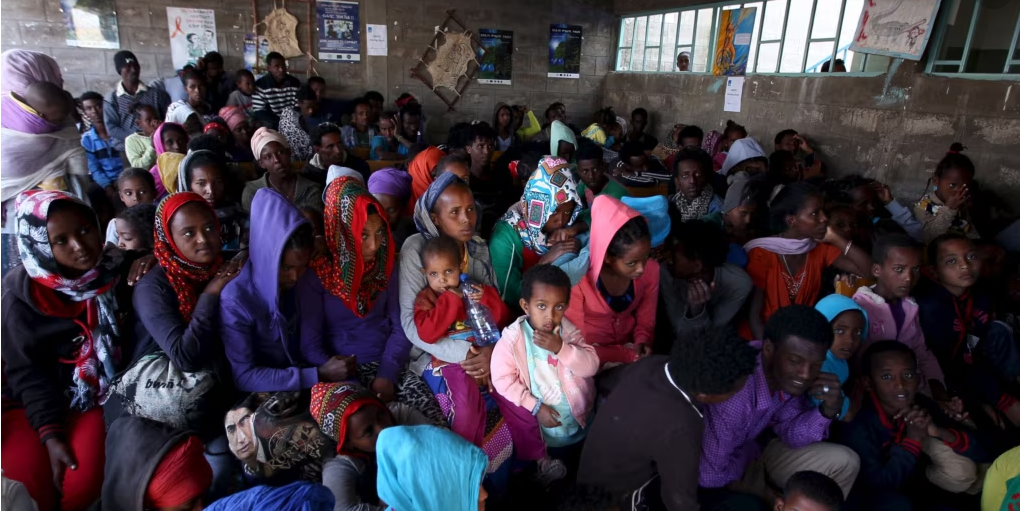
An increasing number of asylum seekers in the United Kingdom are exploiting the system by falsely claiming to be Eritrean, leveraging the country’s high refugee acceptance rate for nationals from that Horn of Africa country, a Daily Mail investigation has revealed.
Human Rights Watch has described Eritrea as a one-man dictatorship under unelected President Isaias Afewerki, with no legislature, no independent civil society organisations or media outlets, and no independent judiciary.
Eritrea continues to suppress basic rights, including freedom of opinion, religion, and expression, with heightened restrictions in the context of forced mass conscription, HRW says in its latest country report on Eritrea. The government continued its abusive indefinite forced military and national conscription service and has failed to either limit the duration of service or stop abuses against conscripts, including children.
Against that backdrop, the Daily Mail report shows how Ethiopian migrants use social media platforms, including TikTok and Telegram, to share strategies for deceiving UK immigration officials into believing they are Eritrean.
Videos shared online demonstrate how individuals mimic Eritrean culture, language, and geography to strengthen their claims. Some of these videos feature detailed guides on fabricating credible backstories and perfecting Eritrean accents, which have sparked concerns among policymakers and prompted the UK Home Office to investigate the allegations
At the centre of the controversy are several individuals, but most notoriously, Michaele Abraha, an Ethiopian Uber driver in London, has gained a significant following on TikTok under the name Miki Abrere. Abraha, whose account boasts 16,000 followers, openly shares his experiences of falsifying Eritrean nationality to gain asylum. His videos offer tips on appearing underage to fast-track applications and on attending Eritrean community events to reinforce credibility during immigration interviews.
This exploitation extends to other platforms like Telegram, the Daily Mail adds, where a group with 3,500 members exchanges comprehensive guides on impersonating Eritreans. These guides detail everything from notable landmarks and regional geography to currency and traditional attire, helping users build convincing identities. One participant in the group reportedly claimed that 12 others had successfully obtained asylum using his framework as a template.
The findings have sparked strong reactions in the UK. Former Immigration Minister Robert Jenrick called them a national security emergency, arguing that such abuses erode public trust in the asylum system. The British public is rightly sick of it, he said, as quoted by the Daily Mail, calling for immediate reforms to tighten border controls and prevent exploitation.
The UK Home Office echoed these concerns, reiterating its commitment to addressing asylum fraud. We are fully committed to ensuring our asylum system is not open to abuse and that protection is granted only to those who genuinely need it, a spokesperson told the newspaper, hinting at the department’s promise to revoke refugee status where evidence shows it was obtained under false pretenses.
Minister of Information Yemane G. Meskel responded to the investigation, describing the asylum fraud as neither novel nor isolated to the UK. Writing on X (formerly Twitter), G.Meskel accused Western nations of encouraging migration through policies he described as part of a strategic depopulation campaign.
According to Meskel, guidelines issued by the UN High Commissioner for Refugees (UNHCR) in 2009 effectively guarantee asylum rights to Eritrean youth, a policy he claims has been exploited for political purposes. He alleged that 40–60% of those granted asylum as Eritreans in the European Union and the UK are in fact Ethiopians.
He further highlighted that joint foreign reviews conducted in 2013–14 recommended revising these guidelines, but the proposals were allegedly overruled for broader political objectives. Joint Foreign Office and Immigration missions from the UK, Denmark and other European countries who visited Eritrea around 2013-14 had recommended review of these policies but were apparently overruled to advance the ‘objectives’ of an over-arching policy of hostility and ‘regime change’, he said.
Asylum fraud and its implications extend beyond the UK; similar patterns have emerged across Europe at different times. In Greece, NGOs have reported cases where Eritrean asylum claims were rejected after applicants were wrongly classified as Ethiopian to facilitate their asylum rejection and deportation, according to an April 2024 report by EUNews.
Rights groups argue that these misclassifications may violate international asylum laws. This is not the first time Eritrean asylum claims have come under scrutiny. In a 2016 BBC report, Eritrea’s migration crisis was highlighted as a key driver behind Europe’s asylum statistics, with more Eritreans crossing the Mediterranean than any other African nationality in 2015. The report suggested that Eritrea’s system of indefinite national service, coupled with allegations of human rights abuses, had made its citizens almost automatically eligible for asylum. However, critics argued that the system was being exploited. An international human rights worker cited by the BBC estimated that 30% of individuals claiming Eritrean nationality were, in fact, Ethiopian or Sudanese.
In a 2023 op-ed, the local Ethiopian news Mereja wrote there has been mounting evidence to suggest that they (Ethiopians) have adopted a false flag identity as Eritreans, not only to elude scrutiny but also to cause discord and destabilisation within the countries that have generously provided asylum.
Earlier in 2015, former Austrian Ambassador Andreas Melan estimated that 30–40% of individuals claiming Eritrean nationality in Europe were actually Ethiopian, calling for attention in an interview first published by APA. Melan attributed this to Eritrea’s significantly higher asylum approval rates, which continue to attract fraudulent claims.
Eritrea’s reputation for mandatory, indefinite military conscription—likened to forced labour by human rights groups—has led to high refugee acceptance rates in the West. In contrast, Ethiopia, while grappling with internal conflicts and poverty, is seen as one of Africa’s fastest-growing economies and hosts over 823,000 refugees from neighbouring countries, including Eritrea, the Daily Mail report added. The UK’s investigation into these allegations underscores the challenges of maintaining an asylum system that balances immigration policies and national security.


